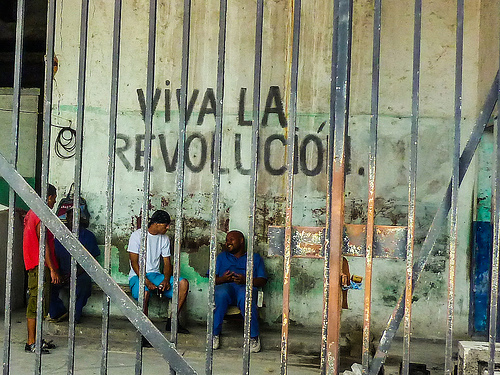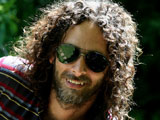Brave New World
by Orlando Luis Pardo Lazo and translated by Alex Higson / January 7, 2013 / No comments
After 55 celebrations of the Revolution, change has not yet come to Cuba.

Photo by Nathan Laurell. Creative Commons.
2013 marks yet another new year in post-communist Cuba. To be exact, it is the 55th celebration of a Revolution that has become fossilized from its leaders all the way down to its Cold War rhetoric.

- Is it worth-while to focus on the last images and letters coming from the inside of the last living utopia on Earth? Is Cuba by now a contemporary country or just another old-fashioned delusion in the middle of Nowhere-America? A Cold-War Northtalgia maybe? Can we expect a young Rewwwolution.cu within that Ancien Régime still known as The Revolution? I would like to provoke more questions than answers.

- Orlando Luis Pardo Lazo was born in Havana City and still resides and resists there, working as a free-lance writer, photographer and blogger. He is the author of Boring Home (2009) and is the editor of the independent opinion and literary e-zine Voces.
In Cuba the first days of January are very quiet, practically mute. Though, before this, there is some festivity. At midnight on New Year’s Eve it’s a tradition to throw buckets of water out onto the street. With this tradition people hope to exorcise negative energy and clean the streets, opening them up to the people—although nothing ever completely opens up in this country.
On December 31 families also have dinner together and listen to dance music at maximum volume. But the city hardly dresses up for the occasion. Only recently have we seen Santa hats appear in shops and Christmas trees in people’s homes. The illusion of change has not yet come to Havana.
During the celebration there are also very few fireworks, as that equipment has been under military control for decades. So between a party here and there, many get bored sitting in front of the TV, until at midnight they broadcast a recording of the National Anthem and a solemn announcer reads an Official Speech to the nation. At this time the State always speaks of “confidence in the Revolution while facing the future,” but since 1959 this future has remained hijacked, like a mirage on the horizon. It is perhaps due to this situation that thousands of Cubans go into exile each year, to live for real and not within a repressive, paternalistic bubble.
Then the music stops. Family members hug and kiss. Tears are shed for absent loved ones. The last merry-makers return home alone. The traffic disappears. And the first day of the new year dawns on the city’s empty streets as though upon a desert landscape.
It is startling. Each new anniversary of the Revolution gives the impression of it having survived in a museum or mausoleum—Octavio Paz’s theoretical idea on the totalitarianism of the twentieth century—a prophecy that is fulfilled punctually in Cuba each January 1. We are living very silent, dead days: More than mute, they are made of marble.




